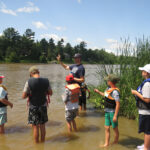Empowering Citizen Scientists with Water Rangers
By Chloe Phillips
Clean water is a right for all; the human race, animals, and the water itself. Just as clean water is a right, so is the ability to identify if water is clean.
Water Rangers is an organization that empowers people to sample and study bodies of water using accessible tools and an online platform to share data, all with the hope of sparking greater change.
The organization is creating space to share accessible data on water quality across all communities. Information gathered by the public is shared on a data platform accessed through a tab on the Water Rangers website’s main page. On the data platform, citizens are able to record their observations of water pH levels, temperature, and much more.
Knowing whether a water body—be it a river, lake or stream—is healthy is essential for the success of the community that depends on it. Water Rangers was founded in 2015 at the first annual AquaHacking Challenge, a program that promotes innovation and technologies that support freshwater health. Water Rangers works to tackle issues that water bodies face through the promotion of meaningful citizen science initiatives.
To facilitate this work, Water Rangers engages in educational outreach in numerous ways. They make the accessibility of their materials a priority, which is supported by an NSERC PromoScience grant that makes educational materials affordable and allows Water Rangers to give out quality test kits so citizens can provide data at a reasonable cost. Water Rangers believes it is vital to empower educators to participate in water quality testing so they will inspire their students to take part as well.
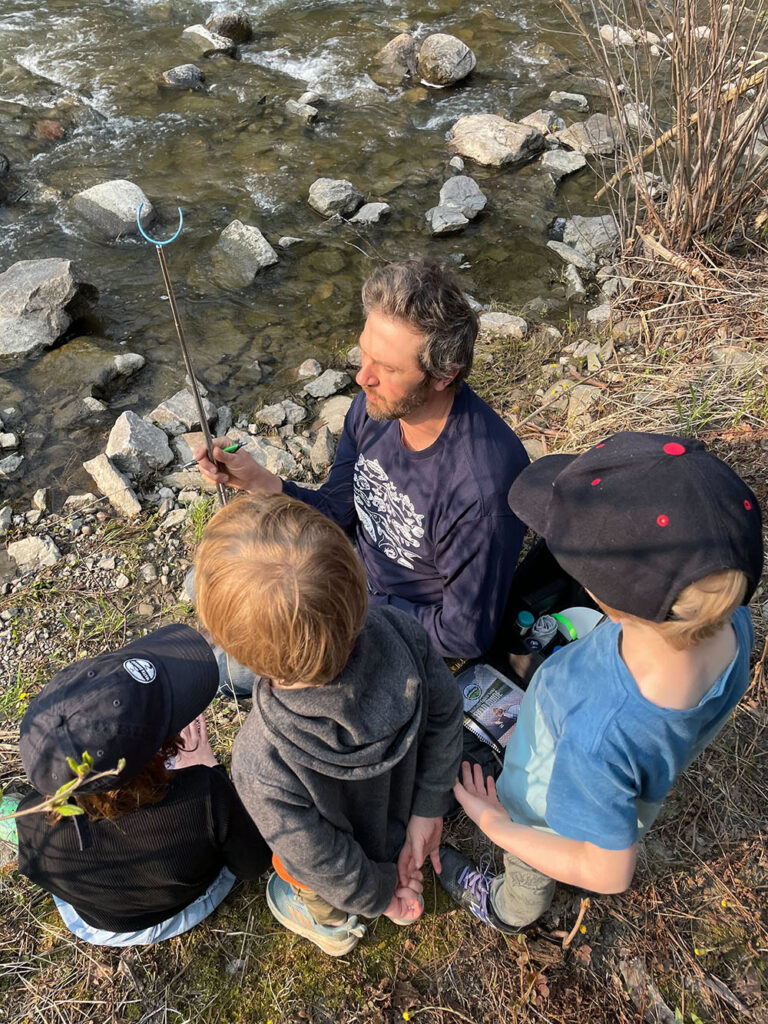
Nikolas MacLean and his three children, explore the contents of their test kit, specifically the grabber that will help them collect the sample of water that will give them clues about the health of a river in Chelsea, Quebec. 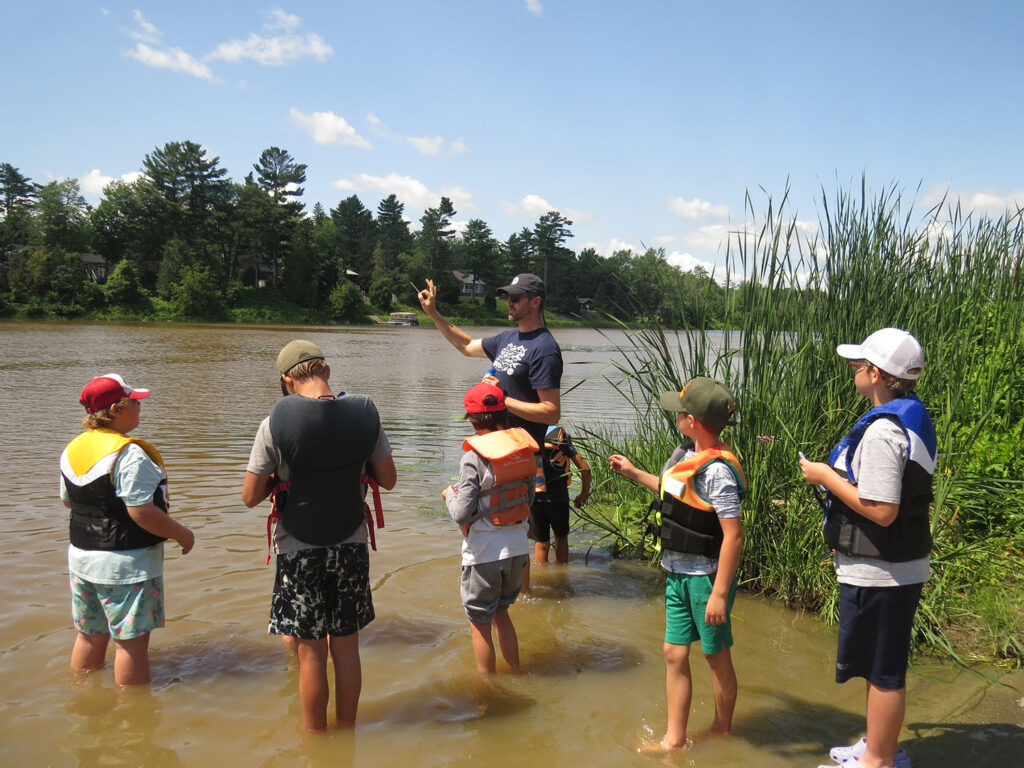
Campers of South Nation Conservation Fish Camp and Water Rangers employee MacLean test the quality of water in their community.
Photos Courtesy of Water Rangers
“We take a train-the-teacher approach, where we meet with the teacher to show them the tools in their kits, talk about how to engage students, and answer any questions they might have,” says Laura Gilbert, community and operations manager for Water Rangers, in an email to Root & STEM. Gilbert emphasizes that they want teachers “to feel empowered to take on water quality testing with their classes.”
The test kits come in various sizes, including a compact version, which includes easy-to-understand instructions, a field guide with further instructions, a notepad, a thermometer to measure air temperature, a reacher stick and sample cup, a meter for water temperature and conductivity, and teststrips for chlorination, hardness, alkalinity, and pH levels. These test kits can be purchased through the Water Rangers online store for about $140 but subsidies are offered on a case-by-case basis.
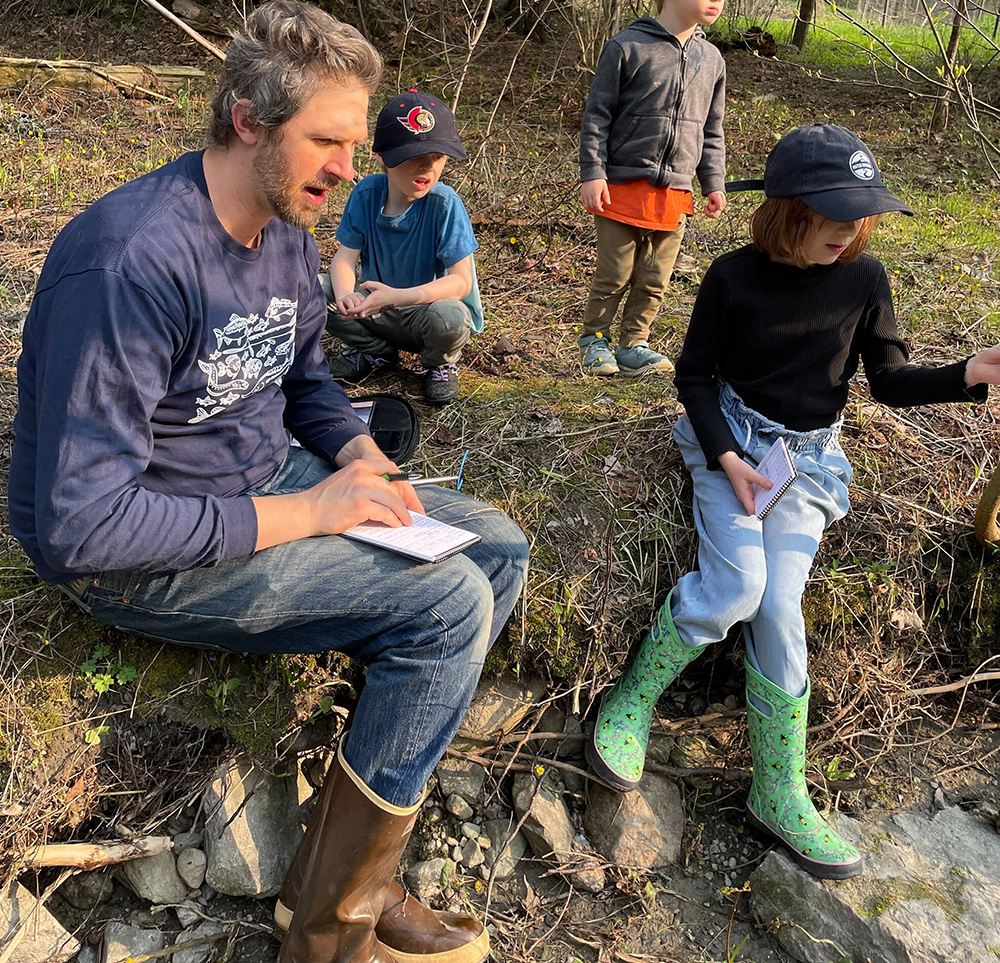
MacLean and his children use notebooks to record information about the river. 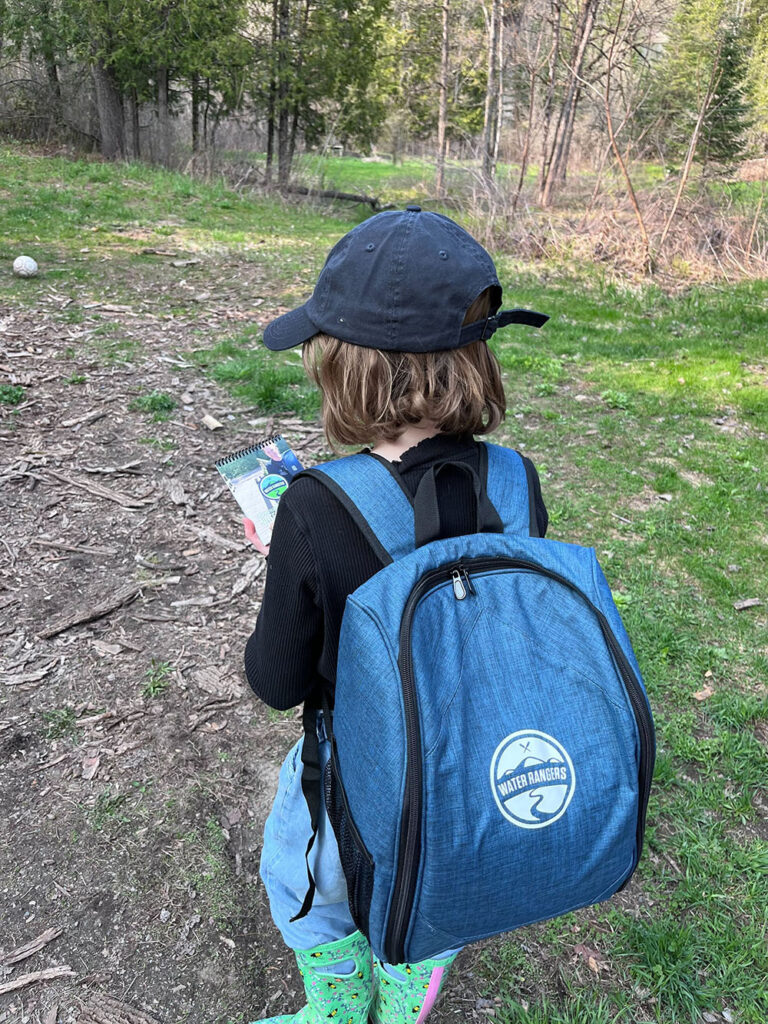
MacLean and his children use notebooks to record information about the river.
Photos Courtesy of Water Rangers
Additionally, Water Rangers is working to make a difference in the local and global community by working with Indigenous communities and researchers across North America. Gilbert explains that part of the Water Rangers budget for funded equipment goes to Indigenous and underserved communities based on conversations with different community members across Canada. To better support these communities, Water Rangers full-time staff also receive training in the First Nations Principles of OCAP (ownership, control, access, and possession), an initiative that ensures First Nations have control over data collection in their communities.
To learn more about Water Rangers, the vitality of water body health, and how to become a citizen scientist for your own community, visit the Water Rangers website.
Resources
- Water Rangers
- How to use Water Rangers’ Compact Kit – Video
